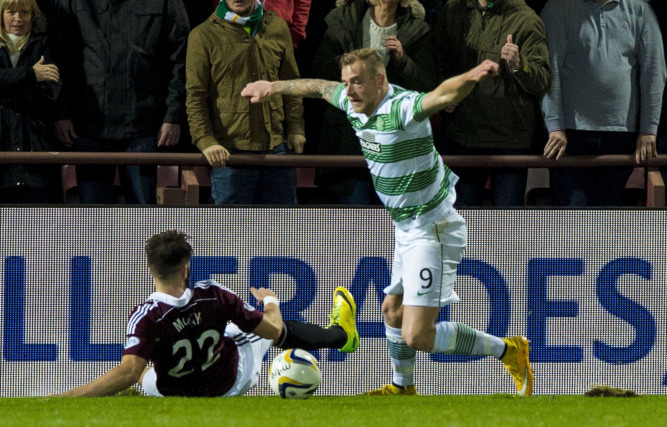
News of the SFA Compliance Officer’s decision to hit Brian Graham with a two-game ban for diving highlighted one of the blights of 2014.
Before, during and after my spell as the Association’s Chief Executive, I have consistently campaigned against simulation. It is, I believe, one of the major things wrong with the modern game. It a serious and persistent threat to the integrity of football.
Cheats are rewarded and, through their actions, supporters can be robbed of the chance to see the best team win the game. Anecdotal evidence proves it to be massively unpopular with players, fans and, of course, the officials who are duped. Yet we see it happen so, so frequently.
Often the problem is judging whether a player has dived or not. For every clear-cut example such as Gary Cahill’s leap in the air during Chelsea’s win over Hull City a couple of weeks back there are many others where it comes down to one man’s word against another. The player who was judged to have made the foul proclaims his innocence, while the victim claims he was brought down.
In these cases the onus is on the officials on the ground and, if need be, the Compliance Officer in retrospect to judge just who is telling the truth. It is always going to be very difficult for referees and linesmen because of the pace the game is played at.
However, I am convinced Tony McGlennan, the SFA’s new Compliance Officer, should revisit an approach I took to Hugh Dallas, then the SFA’s head of the Referees Department, a few years back. It was a newspaper story about a study carried out by a motion expert, Dr Paul Morris.
He said the moment both arms of a person go above the shoulder is a clear indication of deception. That in a real fall, the arms instinctively go down to attempt to cushion the blow. I found it fascinating and believe, used properly, it could be a big aid to making decisions.
Ever since then, I have kept it in my mind and find that in the cases where players are clearly diving, invariably their arms go over their shoulders.
Graham is a good example. Another was Celtic striker John Guidetti, who went down under a challenge from Brad McKay of Hearts in the clubs’ Scottish Cup tie at Tynecastle at the end of November. In the Swede’s case, he was given the benefit of the doubt by McGlennan, who felt he may have simply slipped in the box.
It will be interesting to see if there are similar incidents involving the striker in the weeks and months ahead.
Going back a bit, I remember getting a bit of stick for using the method to say Eduardo definitely dived when playing for Arsenal against Celtic in a Champions League qualifier in 2009. A lot of people, including Arsene Wenger himself, said it was not simulation. Using the Dr Morris method, Eduardo is shown to be guilty.
As I say, it is an annoyance because there is so much that is great about football.
If an effort can be made across the board to drive out simulation to challenge its acceptance as “part of the game” it can be even greater.

Enjoy the convenience of having The Sunday Post delivered as a digital ePaper straight to your smartphone, tablet or computer.
Subscribe for only £5.49 a month and enjoy all the benefits of the printed paper as a digital replica.
Subscribe